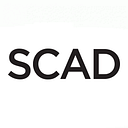Maren Krings’ vision
“How can we sacrifice our planet with no thought for future generations?” asks Maren Krings (B.F.A., photography, 2003). “Are we not willing to give up even the smallest amount of luxury?”
What this photojournalist is saying certainly sounds familiar: Environmentalists have been decrying catastrophic consumerism long before Greta Thunberg stared down the world. What differentiates Krings is her dedication to promoting a single, actionable solution: industrial hemp.
In 2016, Krings, a German citizen, was on assignment in Italy, documenting traditional practices of hand-harvested wheat. There, she met a farmer who gave her a glimpse of the role hemp will play, she says, “in the creation of a system reset that can mitigate the damages of our modern economies.”
That vision led Krings on a five-year mission. Living out of her car, she traveled to 26 countries — including Mongolia, China, Morocco, Iceland, Russia, Turkey, and Sweden — meeting industrial farmers, working with indigenous communities, and chronicling a journey both scientific and personal.
The publication of a book about the experience is now on the horizon. “It’s a matter of finalizing the text, and assembling all the charts, data, and science that need to be translated into my concept,” she says. Krings’ book will include insights from more than eighty interviews she has conducted with industry experts.
While the climate impact storyteller is already something of a spokesperson for industrial hemp — Krings delivered a keynote address at the Swedish hemp industry’s annual conference in early May, and recently published a feature in Sensi — she intends this book to be accessible to the casual consumer, and to include elements of her own Hero’s Journey. “Our climate crisis is a crisis of perception. You can’t really explain a crisis in numbers because statistics don’t speak to our emotional state of being.”
Krings is impressed by how today’s SCAD students embrace sustainability, an awareness that has grown exponentially within a generation. She references the implementation of sustainable practices in photography studios, and the introduction of SCAD’s design for sustainability program. In 2019, Krings reconnected with her former printmaking professor Robert Brown, and traveled to SCAD Atlanta to make photogravures on hemp paper. That experience helped create a sort of moral mandate for Krings, who is determined to have her book sustainably printed on hemp paper.
“My SCAD experience is intrinsic to my work,” Krings says. “Professors Jenny Kuhla, Rich Gere, and Rebecca Nolan all contributed significantly to my development. At SCAD, I became interested in social documentary photography, then deeply engaged in that practice, until the camera became an existential part of my personality.” Which brings Krings back to the matter at hand: a planet being edged over the brink by an occupying force called homo sapiens.
“Ours is a messed-up world, but if you are an optimist, that presents a challenge,” she says. “There are wonderful solutions to be found.”
Written by Peter Relic.
